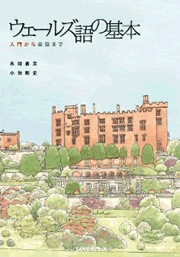There was quite a bit of talk about ventriloquism on an episode of QI I watched recently, mainly because one of the guests was a ventriloquist. The word ventriloquism comes for the Latin words venter (stomach, belly, womb) and loquī (to speak) so it means “to speak from the stomach”. It was known as εγγαστριμυθία (gastromancy) in Greek, which means the same thing.
In other languages the word for ventriloquist is either from the Latin, e.g. ventriloquia (Spanish), ventriloque (French), ventriloquo (Italian), or a calque of the word: Bauchredner (German – ‘belly speaker’), Brzuchomówstwo (Polish – ‘belly speaker), 腹語術 (Chinese – ‘belly language art/skill’). In Welsh though, the word is tafleisydd, from tafle (to throw), llais (voice) and -ydd (suffix for a person or tool), so it means ‘voice thrower’.
Ventriloquism apparently started a religious practice. Ventriloquists were thought to be able to speak to the dead and predict the future, and the voices that seemed to come from the stomachs were thought to be those of the dead. By the 19th century ventriloquism became a form of entertainment and people started using dummies, at least in the West. In other parts of the world, such as among the Zulu, Inuit and Maori, ventriloquism is used for religious and ritual purposes.
Ventriloquism involves talking without moving your lips to make it appear that the words are coming from elsewhere. It is also known as throwing your voice, though no throwing is involved. To make bilabial sounds such as /m/ and /b/ without lip movement the trick is apparently to substitute similar sounds – /n/ and /g/. If you say them fast your listeners’ brains will hopefully hear the letters you want them to – we tend to hear what we expect to hear anyway. Then again, you could just use other words without the troublesome letters. More details.
Have you tried ventriloquism?
I can sort of do it, though would need more practice to do it convincingly.
What I wonder is whether it is easier to ventriloquise in some languages or accents than in others, and whether there are many bilingual/polyglot ventriloquists who speak one language themselves and have their dummy or dummies speaking others. That might be a fun way to practise languages and interpretation skills.

